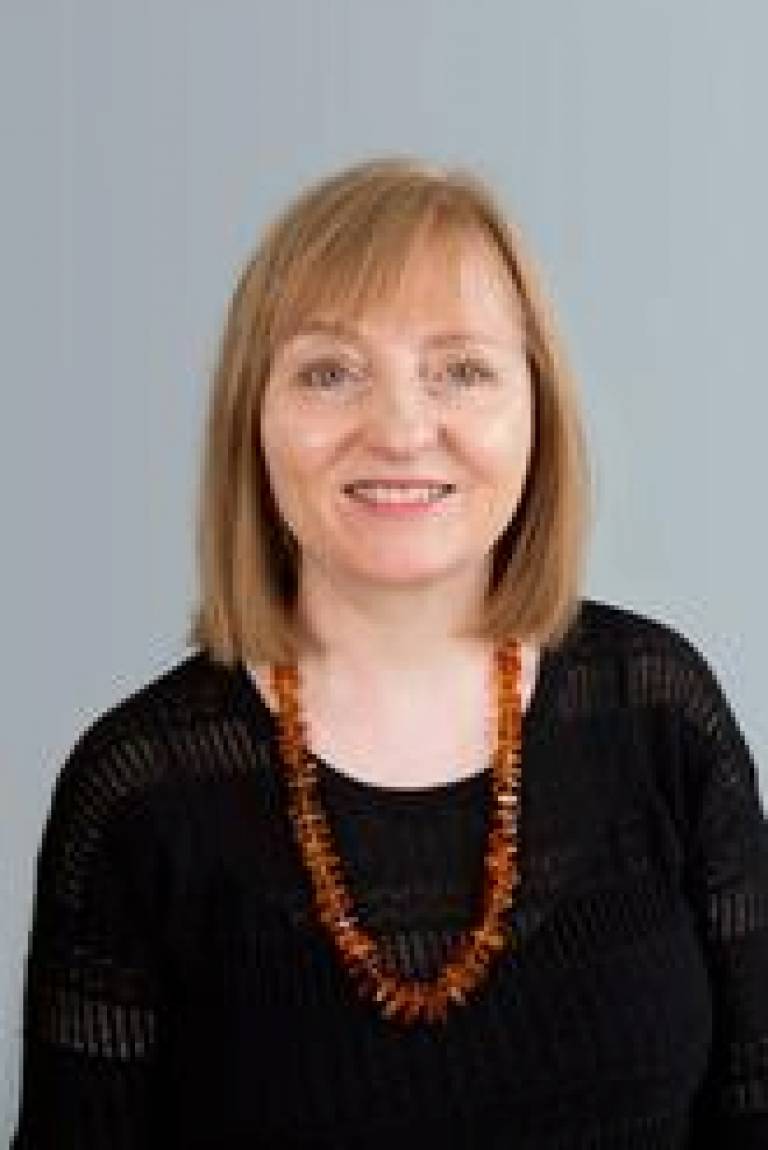Spotlight on Teresa McConlogue
13 December 2012
This week the spotlight is on Teresa McConlogue, Senior Teaching Fellow, Centre for the Advancement of Learning and Teaching.

What is your role and what does it involve?
I work in the Centre for the Advancement of Learning and Teaching (CALT), which supports academic staff at UCL to improve learning, teaching and assessment practices. I work mainly in the School of Life and Medical Sciences (SLMS) with the aim of enhancing the student experience by redesigning curricula so that students are actively involved in learning and assessment.
I also aim to collaborate with academic staff on the evaluation of innovative approaches to teaching and contribute to the scholarship of teaching and learning. I think there is scope to design evaluation projects that will enhance our understanding of learning at UCL.
How long have you been at UCL and what was your previous role?
I joined UCL in the last week of October. Previously I worked at Queen Mary, University of London, helping academic staff across the institution to redesign modules and develop student writing. I enjoyed the variety of working across the college and it was interesting to see how one idea, such as research-based learning, was implemented differently in different disciplines, for example History and Biology.
What working achievement or initiative are you most proud of?
For me the most interesting initiative was supporting academic staff in the School of Engineering and Material Science who wanted to implement peer assessment. The problem we were trying to solve was giving timely feedback on writing assignments in modules with a large student cohort. Our solution was to trial peer assessment, where students would mark and give feedback on four peer assignments. The role of academic staff would be to set up and moderate the peer assessment.
We started with a small-scale project, initially funded by the HEA, and this grew and was extended to other modules, such as a first-year module with 280 students. An online system for submission, distribution of peer marking and calculation and distribution of marks and feedback was developed. Initial evaluations of peer assessment by students were mixed but we refined the implementations and, over a few years, received favourable reviews particularly from students on the large first-year module.
I also introduced the idea of academic writing retreats for PhD students and academic staff. I am a real fan of academic writing retreats; I think they can help PhD students develop strategies for writing a large document and can help students complete. I tried running writing retreats for academic staff; these were very well received and staff reported completing journal articles, book chapters and, in one case, an inaugural lecture during the writing retreats.
What is your life like outside UCL?
I am a member of the London Socialist Film Co-op, which has a great programme of socialist films and speakers, and a keen supporter of Open House London, as I get the opportunity to visit government and private buildings that are not normally open to the public.
It's been a hectic year work-wise. Settling into a new institution takes time and I'm looking to move house, so 2012 has brought many changes. I'm hoping 2013 will be quieter!
 Close
Close

